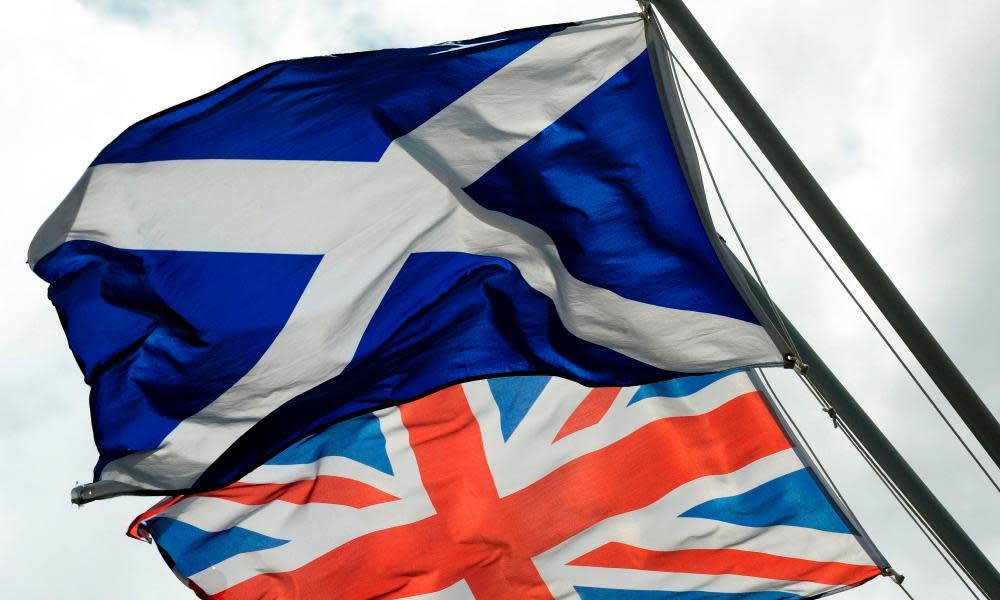Brexit: EU citizens feel safer in Scotland than in England, report says

EU citizens feel more welcome and safer in Scotland than they do in England, university researchers have found.
Interviewees from 13 different EU states living in Scotland acknowledged that the atmosphere was different in the run up to the referendum and was “not, or less hostile” than their experience of the aftermath in England.
“While frustration, anxiety, and disappointment are shared by all participants, we found a stark difference on how EU nationals feel about post-referendum Britain whether they live in England or Scotland,” said Nando Sigona, a professor at the University of Birmingham’s Institute for Research into Superdiversity which conducted the study.
The vote to remain, combined with reassurance from Nicola Sturgeon in a letter directly addressed to EU nationals were considered major factors between the experience of EU citizens in Scotland and England.
Related: Nicola Sturgeon tells EU citizens in Scotland: ‘You are welcome here’
One Danish man in Glasgow said: “I was feeling really depressed [after the referendum] but then I remember how Nicola Sturgeon went on telly the next morning and spoke directly to EU citizens in Scotland and it’s your home and so on, and that was really reassuring.”
“I don’t remember what the letter said but I remember that we got that, me and Fernando and it was so nice to receive this,” said a Portuguese-Brazilian woman.
The report, EU families and Eurochildren in Brexiting Britain, found there was still unease over future life.
One UK national married to an EU national who have five UK-born children said they feel Brexit is “saying to me the way I live my life is no longer acceptable because I married a foreigner”.
Another interviewee spoke of fears they could not bring their elderly parents to the country to look after them even though they had lived here more than 20 years.
Others said their self confidence in their identity had been undermined and they had been forced into taking British citizenship.
One interviewee from Romania said: “Frankly before Brexit I don’t think I would have gone for something like this. I would have been just happy as a I am. I don’t need to be a British citizen. I don’t feel I want to be a British citizen. Now I feel I should be.”
They also felt less disenfranchised because the discussion of Scottish identity including EU families during the 2014 independence referendum, in which they had a right to vote.
“EU citizens in Scotland are worried about Brexit and what it will mean to them and the future of their children. But they also feel at home in Scotland, more than elsewhere in the UK. They feel valued for their contribution. More importantly, they feel they can belong to the Scottish nation because this is not in opposition with being also French, Italian, Polish and European,” said Sigona.
In families of mixed parentage, Polish was the top nationality, followed by German and Irish.
Nazek Ramadan, the director of Migrant Voice and partner of the Eurochildren project, has called on policymakers across the UK to take note of the research to ensure that all migrants in the UK “feel safe and comfortable, and have a chance at a good and prosperous life”.

 Yahoo News
Yahoo News 
